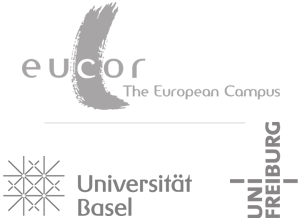Summer School: Sequence – from adjacency pair to interactional activities
| Date | Monday, 18th June 2012 |
| Location |
veranstalter: Lorenza Mondada
ansprechpartner:
email: lorenza.mondada@unibas.ch
web: http://icar.univ-lyon2.fr/ecole_thematique/seq-i/index.htm
institution: HPSL
language: Englisch
location institution: Other
date_raw: 18.-21.06.2012
date_sort: 18.06.2012, 00:00:00
(French version below)
Contents: The SEQ-i summer school offers advanced training in the analysis of social
interaction from a conversation analytic and an interactional linguistic
perspective. More particularly, the school focuses on the organization of the
sequence at various levels. It begins with the most fundamental form of
sequence, adjacency pair (Schegloff & Sacks, 1973), with an analysis of the
way in which a first turn is recognizably formatted as projecting and expecting
the production of a second turn. It complexifies this basic sequence
organization by studying the way in which it can be extended, both with
pre-sequences and with post-sequences (Schegloff, 2007). It also deals with the
way in which multimodal resources and embodied actions contribute to the
organization of the sequence (Goodwin, 2000). Moreover, it deals with extended
and complex sequences, building ‘big packages’ (Sacks, 1992) such as story
telling, argumentative episodes, explanations, complaints, etc.
The school will discuss these diverse
forms of sequential organization (see the lectures given in the mornings). It
will also provide for opportunities to treat empirical data in training modules
about data transcription and in data sessions – in which the participants will
be able to work on their own data (see the programme of the afternoons).
Context: The SEQ-i summer
school is co-organized by the ICAR research lab in Lyon (CNRS &
University of Lyon) and the HPSL in Basel-Freiburg. It is part of a network of
doctoral training programs to be held in summer 2012 – which also includes
the CUSO module organized at the University of Neuchâtel and the University of
Basel on La construction du tour dans
l’interaction uni- et plurilingue/ Turn construction in uni- and plurilingual
interaction which
will be held in Aubier from 31.5. to 2.6.2012 (see http://langage.cuso.ch/les-cours/)
and the summer school of the Southern Danemark University, to be held in summer
in Odense on Interactions with objects. This network offers a great
opportunity to be trained in interactional linguistics within three
complementary fields: turn organization, sequence organization and action
formation in social interaction, both considering linguistic and embodied
aspects.
Participants: The SEQ-i
summer school is open to doctoral students as well as researchers interested in
the analysis of spoken and interactional data. Within linguistics, the school
concerns scholars working within interactional linguistics, the grammar of
spoken language, discourse analysis, corpus linguistics, language teaching and
classroom interaction. Within wider disciplines, the school concerns
micro-sociology, linguistic anthropology, ethnography, and oral history. The
school will take place in French and English. At least a passive competence in
French is required. Participants are invited to bring a sample of their own
data for training sessions on transcription and analysis.
Website:
http://icar.univ-lyon2.fr/ecole_thematique/seq-i/index.htm
Informations:
Lorenza.mondada@unibas.ch, veronique.traverso@univ-lyon2.fr
Programme: Details on the programme can be found here.
Location: Details on the location can be found here.
Registration: Details on the registration process can be found here.
Any further information you can find here.
Contexte :
L’école d’été SEQ-i est organisée conjointement par le
laboratoire ICAR de Lyon et par l’école doctorale HPSLS (Herman Paul
School of Language Sciences) de Bâle/Freiburg. Elle fait partie d’un
réseau d’autres écoles d’été qui auront lieu à la même période : l’école
d’été de la CUSO organisée par les universités de Neuchâtel et Bâle sur
La construction du tour dans l’interaction uni- et plurilingue/ Turn construction in uni- and plurilingual interaction qui aura lieu à Aubier du 31.5 au 2.6.2012 et l’école d’été de l’Université du Sud Danemark sur Interactions with objects
qui aura lieu à Odense en août 2012. Cette collaboration triangulaire
entre 3 écoles d’été permet d’offrir une très riche formation doctorale
dans le champ de la linguistique interactionnelle, couvrant trois
domaines complémentaires : l’organisation du tour, l’organisation de la
séquence et l’organisation de l’action matérielle dans l’interaction.
Public concerné : Le public
visé par l’école d’été SEQ-i est constitué de tous les chercheurs et les
doctorants intéressés par l’analyse des données orales et
interactionnelles. L’école concerne en particulier, en sciences du
langage, les personnes engagées dans la recherche sur l’interaction, sur
la grammaire de l’oral, sur l’analyse du discours, sur les banques de
données orales, sur l’enseignement du français et l’observation des
interactions en classe. Elle s’adresse aussi, de manière
interdisciplinaire, aux chercheurs qui en sociologie, en psychologie
sociale, en ethnographie, en anthropologie linguistique et en histoire
orale, s’intéressent au traitement de la parole en interaction.
L’école d’été SEQ-i se définit comme un lieu
unique de formation au travail sur l’interaction : – présentation des
questions épistémologiques et théoriques
– problématisation des questions méthodologiques
– entraînement à la pratique de l’analyse
Elle se situe au niveau européen, tant au niveau des
formateurs, choisis pour leur visibilité dans les réseaux européens de
travail sur l’interaction, qu’au niveau du recrutement des stagiaires
chercheurs et doctorants. Les langues de travail sont le français et
l’anglais.
L’école entend mettre en contact les chercheurs
débutants et confirmés travaillant dans le champ de l’interaction. On
attend qu’elle dissémine les savoirs-faire dans ce domaine, qu’elle
consolide, voire structure, les réseaux européens actifs dans ce
domaine, et ainsi qu’elle les rende visibles et qu’elle en facilite
l’accès.
Date limite d’inscription : le 30 avril 2012
Nombre estimé de participants : 15 à 20 participants
Mots-Clés : INTERACTION, LINGUISTIQUE
INTERACTIONNELLE, CORPUS ORAL, MULTIMODALITE, METHODOLOGIE,
TRANSCRIPTION, PAIRE ADJACENTE, SEQUENCE
